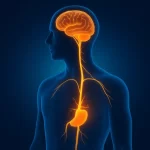Digestive symptoms, from occasional bloating to chronic gut discomfort, affect millions worldwide. But there’s good news: small, manageable steps backed by recent scientific research can significantly improve your digestive health.
Why Good Digestion Matters
Digestion affects more than just comfort, it’s central to your energy levels, mood, and overall wellness. Frequent digestive discomfort might indicate underlying inflammation, gut microbiome imbalance, or dietary sensitivities.
A recent scientific review published in the Journal of Gastroenterology and Hepatology (2022) highlighted that a balanced gut microbiome is crucial for optimal digestion, immune function, and mental well-being. Maintaining digestive health can dramatically enhance daily life.
Signs your digestion needs support:
- Regular bloating after meals
- Stomach pain or discomfort
- Irregular bowel habits (constipation, diarrhea, or both)
- Fatigue or lethargy post-eating
Understanding Common Digestive Problems
Digestive troubles like bloating, stomach discomfort, and irregular bowel habits can be caused by lifestyle factors, diet, stress, or even underlying inflammatory gut symptoms. Recent studies suggest that our digestive health is also closely connected to the health of our nervous system, particularly the parasympathetic nervous system, the body’s natural “rest and digest” mode.
Research indicates that persistent stress disrupts the gut-brain connection, worsening symptoms such as bloating and stomach discomfort (Cryan et al., 2021). Simply put, when your body is stressed or anxious, digestion often suffers.
Practical, Proven Ways to Ease Digestion
1. Practice Mindful Eating
Eating too quickly or on the go can trigger digestive issues like bloating or stomach discomfort. A 2023 study published in Nutrition Journal found that mindful eating focusing on taste, chewing thoroughly, and eating slowly can significantly reduce digestive discomfort. By giving your digestive system time to properly process food, symptoms of indigestion and bloating can diminish notably.
2. Boost Your Fiber Intake Gradually
Fiber supports regular bowel movements, reducing symptoms of digestive discomfort. However, adding too much fiber too quickly can increase bloating. Gradually introduce fiber-rich foods like oats, vegetables, and fruits into your diet to improve digestion gently, according to a systematic review published in the American Journal of Gastroenterology (2024).
3. Incorporate Gentle Movement
Gentle exercise, such as walking or yoga, directly improves digestion by enhancing gut motility and reducing stress levels, according to research in Gastroenterology Clinics (2022). Movement stimulates your parasympathetic nervous system, enhancing its natural digestive functions.
4. Enhance Gut Health with Prebiotics
Prebiotics are foods that feed beneficial gut bacteria, aiding digestion and reducing symptoms of bloating and stomach discomfort. Foods like bananas, garlic, onions, and chicory root boost gut flora naturally, as highlighted in a study from Gut Microbes (2023).
Reducing Stress for Digestive Ease
Reducing stress is pivotal for digestive wellness. Chronic stress activates your body’s fight-or-flight response, interfering with digestion. Activities that trigger relaxation, such as deep breathing exercises, meditation, or even listening to calming music, help activate the parasympathetic nervous system, thus promoting better digestion. A landmark 2022 study from the Journal of Clinical Gastroenterology confirmed these stress-reduction practices significantly reduced symptoms in patients with chronic digestive complaints.
Take the First Step Toward Better Digestion
Digestive wellness is achievable. Start by integrating one or two of these simple steps into your daily routine. Gradual, consistent efforts lead to lasting digestive comfort and overall health improvements.
Medical Disclaimer: This article has been written by a licensed health professional and is intended for general informational purposes only. It does not substitute for personalised medical advice, diagnosis, or treatment. Readers should always seek the guidance of a qualified healthcare provider with any questions regarding a medical condition or health objectives. Never ignore or delay seeking medical advice based on information presented here.
Subscribe for Free for more insightful health articles tailored to your needs.
Citations:
- Cryan, J. F., et al. (2021). The gut-brain axis: Mechanisms and clinical implications. Physiological Reviews. https://journals.physiology.org/doi/abs/10.1152/physrev.00018.2018
- Nutrition Journal (2023). Impact of mindful eating on digestive health. https://www.frontiersin.org/journals/nutrition/articles/10.3389/fnut.2023.1115727
- American Journal of Gastroenterology (2024). Fiber intake and digestive health: A systematic review. https://pmc.ncbi.nlm.nih.gov/articles/PMC9268622/
- Gastroenterology Clinics (2022). Exercise, stress management, and digestive health. GranitePeakGI: Stress Management Techniques to Support Digestive Health
- Gut Microbes (2023). Prebiotics and gut health: Emerging evidence. https://pmc.ncbi.nlm.nih.gov/articles/PMC10881654/
- Journal of Clinical Gastroenterology (2022). Stress reduction and digestive symptom management. https://journals.lww.com/jcge/abstract/2023/10000/a_study_to_evaluate_the_effectiveness_of.15.aspx



